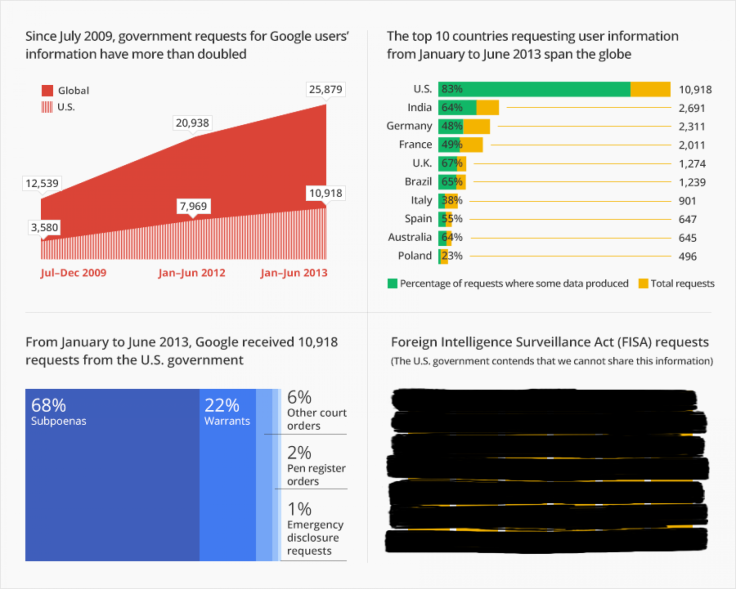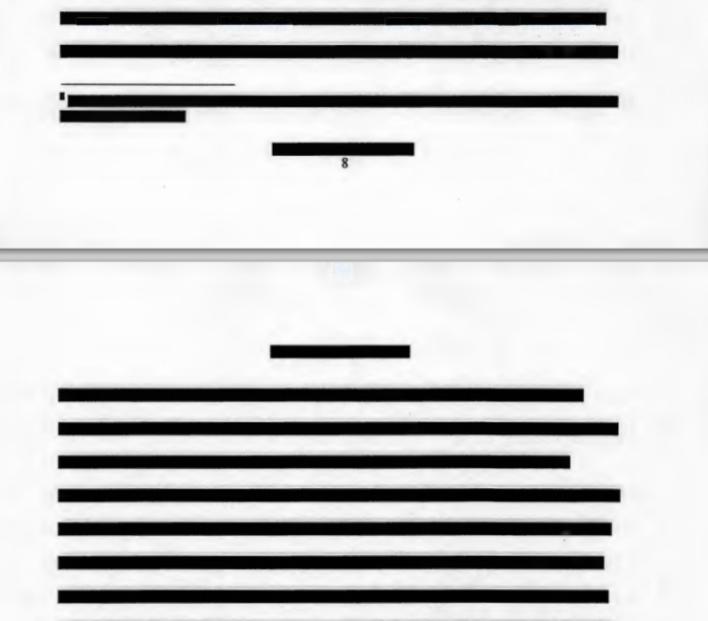Google Transparency Report: Government Requests For User Data Doubled Since 2009

Google Inc. (NASDAQ: GOOG) updated its transparency report for the eighth time on Thursday, revealing that requests for user data from governments have increased more than 100 percent since July 2009. The Google transparency report noted that Google received 25,879 requests for user data in the first six months of 2013 alone.
Nearly 10,918 of those requests came from the U.S. government, and Google said in the transparency report that it gave over user data for 83 percent of those requests. India made the second-most number of requests, at 2,691.

In this version of the transparency report, Google added a new section providing details about the different methods the U.S. government uses to request data. The Google transparency report included information about emergency cases, wiretap orders and pen register orders, which ask Google to hand over information about a user’s communications in real time.
Though the updated transparency report from Google contains more information than ever, the Mountain View, Calif.-based company reminded users that numbers in the transparency report only reflect the requests they are allowed to talk about. The company included a graphic detailing some of the numbers, with all the data on “Foreign Intelligence Surveillance Act (FISA) requests” completely redacted.
Google -- along with Microsoft Corp. (NASDAQ: MSFT), Facebook Inc. (NASDAQ: FB), Yahoo Inc. (NASDAQ: YHOO) and LinkedIn Corp. (NYSE: LNKD) -- submitted claims with the Foreign Intelligence Surveillance Court that they have the right to disclose the number of FISA requests they receive to their users under the First Amendment.
The government responded on Sept. 30, but its arguments are so heavily redacted that Google and the other tech companies don’t even know why the government is opposing their requests. Here’s a screenshot from FISC’s response to the tech companies.

“We believe it’s your right to know what kinds of requests and how many each government is making of us and other companies,” Richard Salgado, the legal director of law enforcement and information security at Google, wrote on the official Google blog. “However, the U.S. Department of Justice contends that U.S. law does not allow us to share information about some national security requests that we might receive. Specifically, the U.S. government argues that we cannot share information about the requests we receive (if any) under the Foreign Intelligence Surveillance Act. But you deserve to know.”
Although the total amount of requests has increased, Google said in the transparency report that it has responded to a smaller percentage of those requests over time. That can either mean that Google is doing more to deny government requests, or that governments around the world are simply getting more frivolous with their requests for user data.
© Copyright IBTimes 2024. All rights reserved.






















